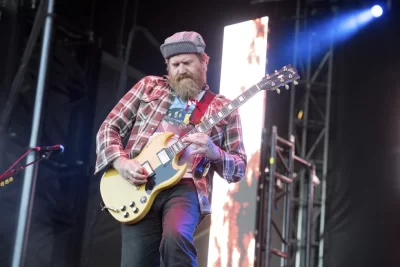
JERUSALEM — Israel and Lebanon-based Hezbollah militants began a ceasefire Wednesday in a major step toward ending nearly 14 months of fighting as a region on edge wondered whether it will hold.
Some celebratory gunshots could be heard in parts of Beirut’s southern suburbs, battered over the past two months, but no immediate violations of the ceasefire were reported.
Israel has said it will attack if Hezbollah breaks the agreement, and an Israeli military spokesman, in an Arabic-language X post in the first half-hour of the ceasefire, warned evacuated residents of southern Lebanon to not head home yet, saying the military remained deployed there.
The ceasefire calls for an initial two-month halt to fighting and requires Hezbollah to end its armed presence in southern Lebanon, while Israeli troops are to return to their side of the border. Thousands of additional Lebanese troopsand U.N. peacekeepers would deploy in the south, and an international panel headed by the United States would monitor compliance.
The ceasefire began at 4 a.m. Wednesday, a day after Israel carried out its most intense wave of airstrikes in Beirut since the start of the conflict that in recent weeks turned into all-out war. At least 42 people were killed in strikes across the country, according to local authorities.
The ceasefire does not address the devastating war in Gaza, where Hamas is still holding dozens of hostages and the conflict is more intractable.
There appeared to be lingering disagreement over whether Israel would have the right to strike Hezbollah if it believed the militants had violated the agreement, something Prime Minister Benjamin Netanyahu insisted was part of the deal but which Lebanese and Hezbollah officials have rejected.
Israel’s security Cabinet approved the U.S.-France-brokered ceasefire agreement after Netanyahu presented it, his office said. President Joe Biden, speaking in Washington, called the agreement “good news” and said his administration would make a renewed push for a ceasefire in Gaza.
The Biden administration spent much of this year trying to broker a ceasefire and hostage release in Gaza but the talks repeatedly sputtered to a halt. President-elect Donald Trump has vowed to bring peace to the Middle East without saying how, and his team linked the deal to Trump’s looming return to office.
Any halt to the fighting in Lebanon is expected to reduce the likelihood of war between Israel and Iran, which backs both Hezbollah and Hamas and exchanged direct fire with Israel on two occasions earlier this year.
Netanyahu’s office says his security Cabinet has approved ceasefire deal with Hezbollah
At a news conference, U.N. Human Rights Office spokesman Jeremy Laurence says the High Commissioner has reiterated his call for an immediate ceasefire.
Israel says it will ‘attack with might’ if Hezbollah breaks truce
Netanyahu presented the ceasefire proposal to Cabinet ministers after a televised address in which he listed accomplishments against Israel’s enemies. He said a ceasefire with Hezbollah would further isolate Hamas in Gaza and allow Israel to focus on its main enemy, Iran.
“If Hezbollah breaks the agreement and tries to rearm, we will attack,” he said. “For every violation, we will attack with might.”
Biden said Israel reserved the right to quickly resume operations in Lebanon if Hezbollah breaks the terms of the truce, but that the deal “was designed to be a permanent cessation of hostilities.”
Netanyahu’s office said Israel appreciated the U.S. efforts in securing the deal but “reserves the right to act against every threat to its security.”
Lebanon’s caretaker Prime Minister Najib Mikati welcomed the ceasefire and described it as a crucial step toward stability and the return of displaced people.
Hezbollah has said it accepts the proposal, but a senior official with the group said Tuesday it had not seen the agreement in its final form.
“After reviewing the agreement signed by the enemy government, we will see if there is a match between what we stated and what was agreed upon by the Lebanese officials,” Mahmoud Qamati, deputy chair of Hezbollah’s political council, told the Al Jazeera news network.
“We want an end to the aggression, of course, but not at the expense of the sovereignty of the state,” he said, referring to Israel’s demand for freedom of action. “Any violation of sovereignty is refused.”
Warplanes bombard Beirut and its southern suburbs
Even as ceasefire efforts gained momentum in recent days, Israel continued to strike what it calle Hezbollah targets across Lebanon while the militants fired rockets, missiles and drones across the border.
An Israeli strike on Tuesday leveled a residential building in central Beirut — the second time in recent days warplanes have hit the crowded area near downtown. At least seven people were killed and 37 wounded, according to Lebanon’s Health Ministry.
Israel also struck a building in Beirut’s bustling commercial district of Hamra for the first time, hitting a site around 400 meters (yards) from Lebanon’s Central Bank. There were no reports of casualties.
The Israeli military said it struck targets linked to Hezbollah’s financial arm.




